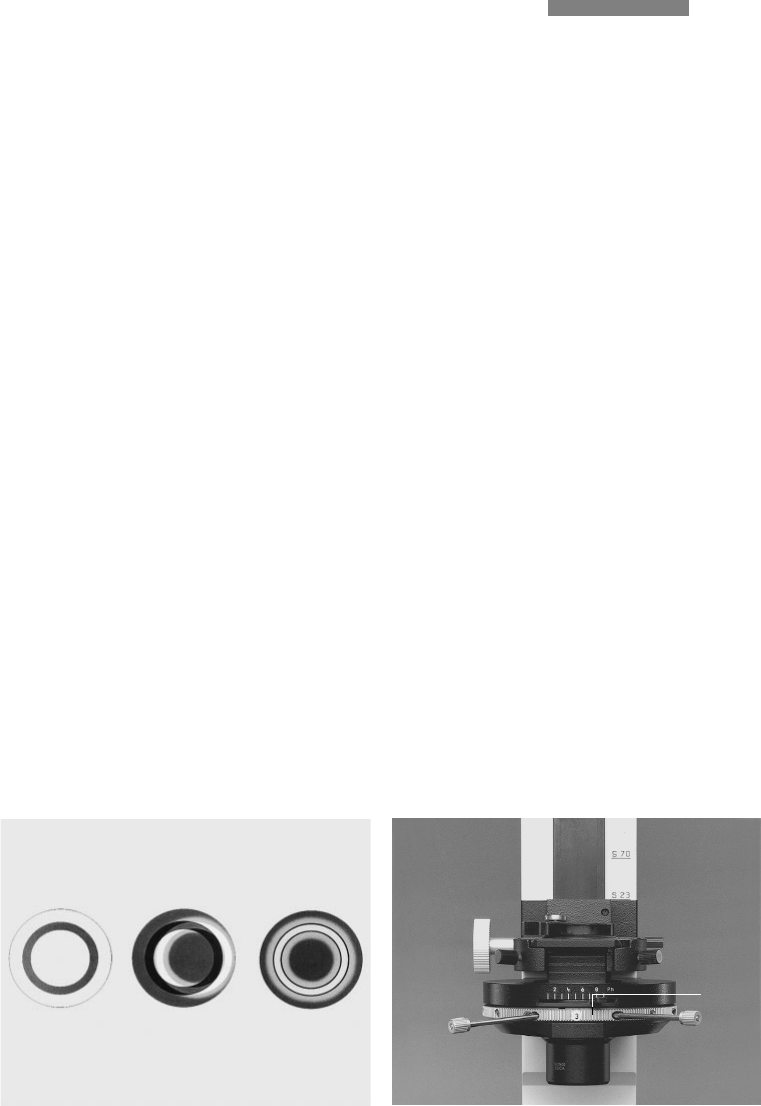
74
Operation of phase contrast
Set the light ring (64.2) in the condenser disc
that corresponds to the objective engraving
(PH2). Open the aperture diaphragm (= pos. PH).
Move the Bertrand lens into the light path =
pos. B by turning the knurled knob and focus the
annular structures with the lever (Fig. 64).
Insert the two supplied centring keys into the
openings of the disc on the left and right of the
label plate (e.g. 3) (Fig. 64.2) and turn them until
the dark ring (phase ring in the objective)
coincides with the slightly narrower ring (light
ring in condenser).
Then repeat the centration process for the other
objective/light ring combinations. Disengage the
Bertrand lens, pos. 1x.
Fig.␣ 63␣ ␣
Centration for phase contrast, viewing with a Bertrand
lens
␣
a Condenser in brightfield position (H), b Condenser in PH
position, light ring LR not centred, c Light ring and phase ring
centred
Fig.␣ 64␣ ␣ Centration process for phase contrast/DF
1 Centring keys in working position, 2 Disc
Phase contrast observation
Like transmitted light darkfield and transmitted
light interference contrast, phase contrast is
used to produce high-contrast images of un-
stained specimens.
Setting phase contrast with condenser 0.30 S70
Phase contrast observation is possible with ob-
jective magnifications from 5x to 40x.
Turn a phase contrast objective (engraving e. g.
PH2) of the lowest magnification into the light
path and focus the specimen. If it is difficult to
find the focal plane: temporarily narrow the
aperture diaphragm or use a stained specimen
and switch the disc to pos. H (= brightfield).
1
1
2


















